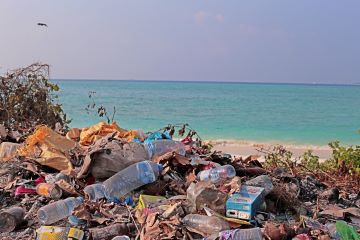 By Simangazo Mokale
By Simangazo Mokale
For the sake of our children and the future of our nation we need to commit to a healthy environment that is free of plastic pollution. When walking in our towns or cities you are often met with a lot of plastic and litter everywhere. Our actions are busy destroying our future and pose a grave risk for to our environment.
Every year on 05 June, World Environment Day is commemorated to bring attention to pressing environmental issues and in 2023 the focus was on finding solutions to plastic pollution under the campaign #BeatPlasticPollution.
The commemoration showcased how countries, businesses and individuals are learning to use the material more sustainably, offering hope that one day, plastic pollution will be history. The commemoration was also important as it deepened public awareness of the need to preserve and enhance the environment.
Businesses are key role players with a specific duty to ensure that packaging is reusable or recyclable, and must strive to eliminate single-use plastic shopping bags, and find innovative ways to use waste to make new packaging and products.
Plastic pollution is now a global problem with an estimated 353 million tonnes of plastic waste produced yearly, with much of this waste landing up in our oceans. Simply put plastic poses one of the greatest risks to our planet and action must be taken by government, business and individuals.
During World Environmental Day in 2023 the Minister of Forestry, Fisheries and the Environment Barbara Creecy visited two recycling plants in Cape Town, that are supported through Producer Responsibility Organisations to gain insights into the roles Extended Producer Responsibility Schemes are playing in plastic recycling.
Waste Want, which is located in Kraaifontein started out as a small collections company, selling collected recycling material to recyclers and currently employs 200 people and diverts one thousand tons of plastic waste from landfills every month.
CRDC SA RESIN8, which is based in the Blackheath industrial area converts plastic into an aggregate modifier for the construction industry. This company currently processes 450 kg of waste a day and they aim to reach 610 tons per month when they reach full production.
These two companies, amongst many others are helping to turn the tide against plastic pollution. In South Africa, according to World Wide Fund (WWF), over 2, 5 million tonnes of plastic are produced annually. Only a fraction of this is recycled while the remainder ends up in lakes, rivers and the oceans. Much of the plastic we are exposed to is unseen as micro plastics make their way into the food we eat, the water we drink even the air we breathe.
The time to act against plastic is now and it requires the help of everyone. One immediate action we can take is to stop illegal dumping which is turning our open spaces into wastelands.
To address the challenge of illegal dumping, the Department of Forestry, Fisheries and the Environment will support municipalities in improving cleanliness. The department will also use the expanded Public Works Programme to offer work opportunities to 2000 women, youth and persons with disabilities per province to support the cleaning and greening of provincial capitals.
These actions will help to stem the tide of pollution, but ultimately combined actions are needed to combat it. Let us work together as citizens, communities, government and business to find creative and innovative ways to remove plastic pollution from our communities and ensure that we create a greener tomorrow.
Simangazo Mokale is the Assistant Director: Communication Resource Centre





